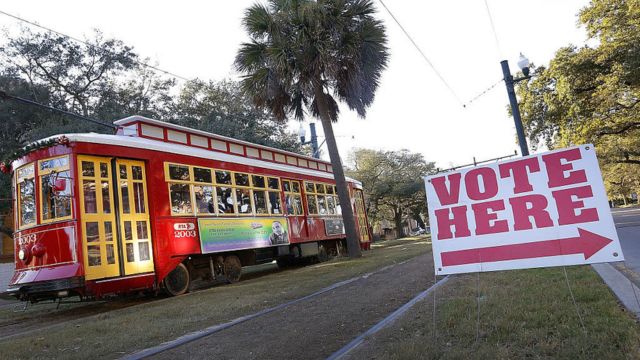Republicans like Gov. Jeff Landry were shocked when voters in Louisiana turned down all four of his proposed constitutional amendments on Saturday. This included the governor’s plan to change the state’s tax and budget rules.
In an election that could have political effects for the rest of Landry’s term, almost two-thirds of voters turned down all of the changes.
When trying to get his plans through the Louisiana Legislature, the governor has sometimes used force. Now that his most ambitious policy idea failed at the polls, he may be more open to criticism.
Amendment 2, which was Landry’s main election issue, would have lowered the highest income tax rate the state could set and limited yearly budget increases for the state. Also, adding new tax breaks would have been harder to do.
It was thought that the plan would bring Landry and state lawmakers a lot of money later this year. Millions of dollars in tax money from state savings accounts would have been moved to Louisiana’s general fund by Amendment 2. This is where Landry and the state legislature could have easily spent the money.
For voters to support Amendment 2, Landry tried to make it more appealing by linking it to teacher pay. Temporary stipends of $2,000 and $1,000 have been given to teachers and school support workers for the past two years. If the bill passed, it would have made these payments permanent.
The teachers could lose some of their pay because Landry hasn’t included money for their salary in his current budget plan.
In a statement released after the election was over, the governor said that billionaire George Soros was to blame for the loss of Amendment 2. Soros is a Holocaust survivor from Hungary who has been criticised by conservatives for years for supporting leftist causes.
Landry said, “Soros and people on the far left poured millions of dollars into Louisiana with lies and propaganda about Amendment 2.” “We’re upset about how tonight went, but we don’t see this as a failure.” We understand how hard it can be to make good changes in a state that is set up to fail. For us, this is not the end. We will keep fighting to make the long-term changes that Louisiana needs to win.
The most current tax records show that Soros’ Open Societies Foundations gave $1.25 million to a branch of the Vera Institute of Justice in 2023. The Vera Institute of Justice is a non-profit with $260 million in annual revenue that worked to defeat Amendment 3. It’s not clear if any of the money that Soros’ organisation gave in 2023 was used to pay for the election in Louisiana.
One more controversial investor backed Amendment 2 for Landry. Charles Koch started the group Americans for Prosperity, which pushed the plan by calling people, knocking on doors, and sending direct mail.
People who were against Amendment 2 were happy that it failed on Saturday night. One of them is William Most, an attorney who tried but failed to get the plan taken off the ballot. He has said that the language votes were given was hard to understand and misleading, which makes it illegal.
“I believe this is a strong rejection of all efforts to sway Louisiana voters towards something they don’t want,” Most said. “… “This makes it clear that state officials can’t lie or cheat to change our constitution if they want to.”
Landry and the mostly Republican legislature may have made people more against Amendment 2 by putting it on the same vote as Amendment 3, a measure to improve juvenile justice that Democrats and national anti-incarceration groups were against.
66% of voters were against Amendment 3, which would have made it easier to send more teens and young adults to adult bars and prisons for longer terms. National groups working to change the criminal justice system, like the Vera Institute and the Southern Poverty Law Centre, spent more than $500,000 to try to get people to vote against it.
Sarah Omojola, head of the Vera Institute in Louisiana, said that the results of Amendment 3 show that voters are beginning to doubt that jail time is the only way to handle criminal cases. She also said that high rates of incarceration have made neighbourhoods less stable instead of lowering crime.
“By rejecting Amendment 3, voters made it clear that they want things like good schools and more opportunities that make our communities safer,” Omojola said in a statement.









